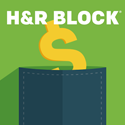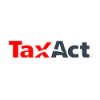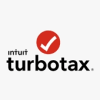Other Notable Tax Software You Can Use
1. Drake TAX
Drake TAX is a reliable, user-friendly software designed for tax professionals. It offers comprehensive features like quick data entry, easy form navigation, and robust customer support, making tax filing smooth and efficient.
2. ThePayStubs
ThePayStubs is a handy tool for generating pay stubs, and W2 forms online. It provides accurate and professional formats, using which anyone can easily create their W2s, 1099s, 1040s, and more. This tool is a great option for enterprises, small businesses, and even freelancers. It offers a quick, reliable way to document income for tax purposes.
3. UltraTax
UltraTax is yet another powerful software that makes finance easy. It offers a seamless tax preparation experience. With its customizable options and strong integration capabilities, it is ideal for firms. They can streamline their tax processes and boost productivity.
4. CCH Axcess™ Tax
CCH Axcess™ Tax is a cloud-based solution that connects all your tax workflows in one place. Its advanced automation and real-time collaboration features simplify complex tax tasks. Thus ensuring accuracy and efficiency.
5. Intuit ProSeries Tax
Intuit ProSeries Tax is a popular choice among tax professionals. the solution is known for its ease of use and comprehensive tax form coverage. Moreover, Its intuitive interface simplifies the process. Plus, the built-in error checks make tax preparation straightforward and help avoid mistakes.
How does Tax Software work?
By automating and streamlining several procedures, tax software simplifies and expedites the process of submitting and preparing tax returns. This is the general process that follows:
1. User Input: The best tax software usually asks you several questions about your financial health when you first use it. Your sources of income, credits, deductions, dependents, and other pertinent tax-related data are covered by these inquiries. The structure of this questionnaire is intended to be user-friendly; it frequently uses straightforward language to walk you through intricate tax conditions.
2. Data Organization: The information you submit to the paid and free tax software is arranged by the pertinent parts of your tax return. For example, revenue from various sources is distributed to the appropriate schedules and forms. This also holds for credits and deductions.
3. Calculations: The capacity of professional tax software to compute the amounts for your return automatically is one of its main benefits. It evaluates if you owe money to the tax authorities or are due a refund, computes your taxable income, applies the relevant tax rates, and computes deductions and credits.
4. Error Checking and Compliance: Error-checking tools in good tax software notify you of possible errors or discrepancies in your return. Additionally, it keeps up with the most recent changes to tax laws and regulations, guaranteeing that your file complies with the law as it is.
5. E-Filing: The best tax preparation software enables you to file your return (e-file) with the IRS electronically and, if required, your state tax authority once you've reviewed and finished it. Sending a paper return via mail is slower and less secure than e-filing.
6. Support and Advice: A lot of the best free tax software products include extra help, such as advice from tax experts, clarifications of different tax concepts, and recommendations for future tax planning.
Good tax software is designed to take the complexity out of tax preparation, making it more accessible and less error-prone for taxpayers.
Points to Consider When Choosing an Online Tax Software Provider
Choosing the right online tax software provider is crucial for an efficient and accurate tax filing experience. Here are key factors to consider:
1. Ease of Use: Search for good tax software with a user-friendly UI. Especially if you're not familiar with tax regulations, it should walk you through the filing procedure in plain language with easy-to-follow directions.
2. Filing Needs: The decision you make should be based on your specific tax situation. For straightforward returns, basic software could be adequate, but more sophisticated capabilities are required for more complicated scenarios like self-employment, rental income, or significant investments.
3. Cost: Compare the prices of the best tax software packages. For simple returns, some provide free versions; however, more intricate returns can call for a premium version. Be cautious of unstated costs for extra services or state refunds.
4. Accuracy and Compliance: To ensure compliance and optimize credits and deductions, make sure the best tax prep software is updated with the most recent tax legislation. Seek out a supplier who promises accuracy.
5. Security: Since you’ll be providing sensitive financial information, check the provider's security measures to protect your data.
6. Customer Support: Good customer service may be quite helpful, particularly if you run into problems or have inquiries about taxes. Verify whether the service provider provides phone, email, or live chat assistance, among other methods.
7. E-filing Capabilities: Select software that allows for direct electronic filing to the IRS. Paper filing is slower and less secure than electronic filing.
8. User Reviews and Reputation: Look up user comments and evaluations. These may offer perceptions of the program's dependability, user-friendliness, and contentment.
9. Additional Features: Certain companies include additional services such as tools for tax preparation, audit help, or tax return storage.
10. Try Before You Buy: If possible, use a free trial version to get a feel for the software before committing to it.
Always keep in mind that the best tax software for you will rely on your budget, tax law knowledge, and your tax circumstances. Consider your needs carefully and completely investigate your possibilities.
Some Best Ways To Do Taxes
The best way to do your taxes depends on your circumstances, including the complexity of your financial situation, your comfort level with tax laws, and your budget. Here are some common methods:
1. Do-It-Yourself with Tax Software: Using online tax software such as H&R Block, TaxAct, or TurboTax might be a cost-effective and expedient option if your finances are simple. You may find deductions and credits with the aid of these tools, which also enable you to e-file your forms. They provide many versions depending on the intricacy of your tax situation and are generally simple to use.
2. Hire a Tax Professional: Hiring a tax expert like a Certified Public Accountant (CPA) or a tax attorney could be the best option if your taxes are complicated (including self-employment, investments, rental properties, or other issues). They can manage challenging tax situations, guarantee correctness, and offer professional assistance.
3. Use Free Tax Preparation Services: You could be eligible for free tax preparation assistance through initiatives like Tax Counseling for the Elderly (TCE) or the IRS's Volunteer Income Tax Assistance (VITA) if your income is below a specific threshold. The volunteers delivering these services are IRS-certified.
4. Free File Software: You can use the IRS Free File program, which gives you access to free tax preparation software from several firms if your adjusted gross income is within a specified level.
5. Manual Filing: You can choose to physically fill out and submit your tax forms if you are familiar with tax regulations and procedures, but this method takes longer and is more error-prone than filing electronically.
6. Consult Online Resources: For those who want to file their taxes on their own, websites such as IRS.gov provide helpful materials and guidelines.
7. Stay Organized: Whatever your approach, maintaining an annual financial document organization will streamline the tax preparation process.
8. Plan Ahead: To optimize your tax credits and deductions, think about tax planning techniques all year long.
9. Stay Informed: Tax rules are subject to regular change, so it's critical to remain up to date on any changes that can have an impact on your filings.
Cost, ease of use, and the intricacy of your tax position are frequently taken into consideration when selecting the optimal tax preparation strategy.
Who Should Use Tax Software?
Tax software can be a valuable tool for a wide range of individuals and entities, including:
1. Individual Taxpayers: Good tax software may be helpful for those with a variety of job statuses, including freelancers and salaried employees, particularly if their financial circumstances are simple.
2. Self-Employed Individuals: The most advanced and best tax software versions designed to manage self-employment revenue, costs, and certain deductions are available to freelancers, contractors, and small company owners.
3. Investors: Good tax software may be useful in managing capital gains, losses, and associated tax consequences for individuals who have investment income from stocks, bonds, mutual funds, or rental properties.
4. Students: College students may utilize the best tax software to handle school credits and deductions, particularly if they have grants, scholarships, or student loans.
5. Families with Dependents: Free tax software that helps optimize benefits and deductions for children and dependents, such as the child tax credit and the child and dependent care credit, is available to parents and guardians.
6. Retirees: The best free tax software may be used by retirees who get pension income, social security payments, and dividends from retirement accounts to guarantee proper filing and maximize deductions.
7. Taxpayers with Charitable Donations: Professional tax software may be utilized by individuals who make substantial charitable gifts to monitor and record these deductions accurately.
8. Individuals Eligible for Tax Credits: With the best free tax software, you can make sure you don't lose out on tax credit changes, such as the earned income tax credit (EITC) if you qualify for them.
In general, tax software is not advised for particularly complex tax scenarios, such as intricate estate tax procedures, large-scale commercial operations, or foreign tax concerns. It is wise to speak with a tax expert in these situations. But for the majority of taxpayers, filing taxes is made easy, accurate, and affordable with the help of tax software.
Who shouldn’t use tax software?
Certain people or organizations might not benefit from tax software, especially in complicated tax situations. These are:
1. Large Business Owners: Tax software may not be sufficient for company owners of large or sophisticated companies with complex accounting systems.
2. High Net Worth Individuals: More individualized tax planning and counsel may be necessary for those with substantial wealth or complex investment portfolios that include items like foreign interests.
3. Those with International Tax Obligations: People who have financial interests across borders, such as expatriates, could encounter tax scenarios that are too intricate for conventional software to handle.
4. Individuals in Complex Estate Planning Situations: More expert guidance is frequently required for those handling complex estate planning or trust-related tax concerns than what tax software can offer.
5. Taxpayers with Previous Legal Tax Issues: Those who have previously been audited or have had legal disputes with the IRS may gain more from expert advice.
6. Those Uncomfortable with Technology: Online tax preparation may be difficult for people who are not comfortable using computers or navigating software.
7. Taxpayers with Unique Tax Situations: You may need to seek expert counsel if your tax situation contains unusual or special circumstances that are not usually handled by regular tax software.
The best course of action in these situations is often to speak with a tax specialist, such as a tax attorney or Certified Public Accountant (CPA). They may assist with strategic tax planning, guarantee adherence to intricate tax regulations, and offer customized assistance.































